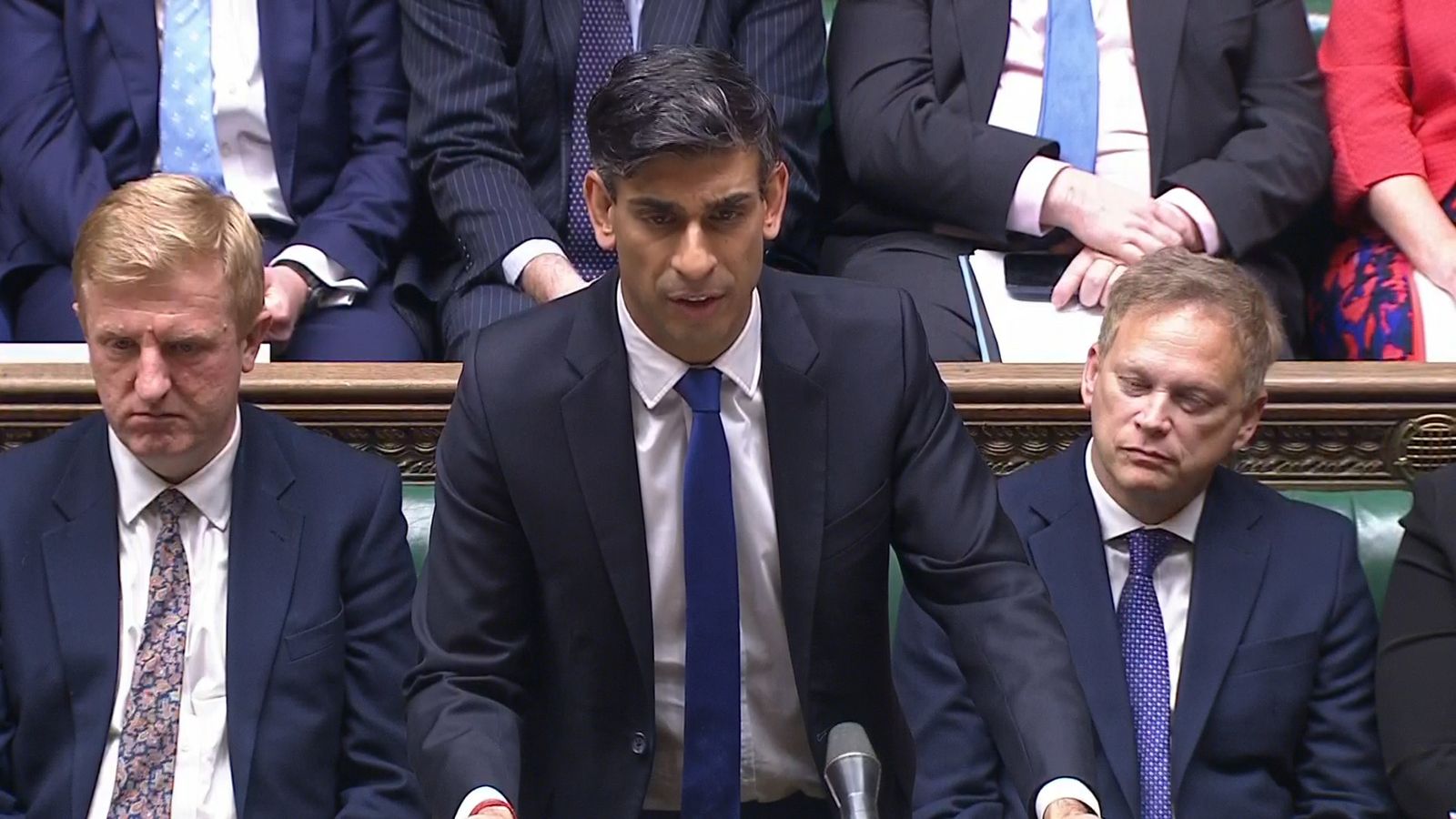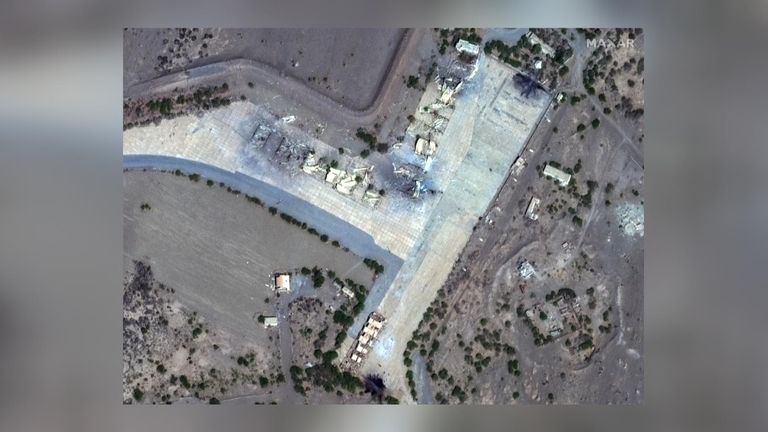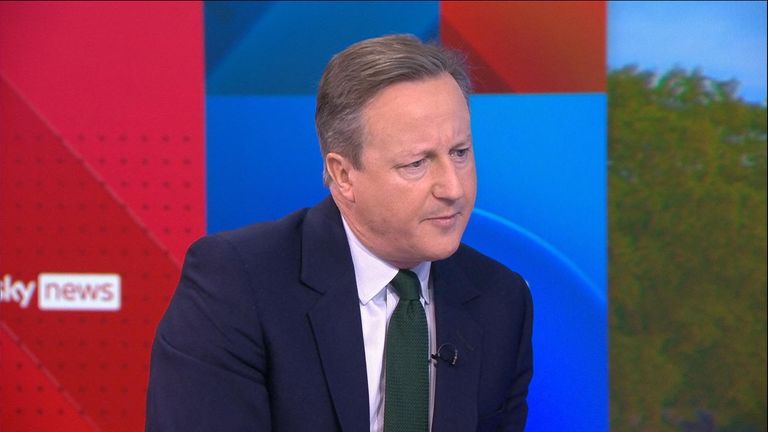Rishi Sunak has said the strikes conducted against Houthi rebels in Yemen were intended as a “single, limited action” amid questions about the UK’s long-term strategy.
The British military joined forces with the US on Thursday night as it launched attacks against Houthi bases in Yemen, in retaliation for the group’s targeting of international trade in the Red Sea.
The prime minister updated MPs in the Commons for the first time since the strikes were carried out last week, following criticism that parliament was not consulted beforehand.
Mr Sunak told MPs all planned targets had been destroyed in the strikes and there had been no reports of civilian casualties.
The prime minister also explained why he had not informed parliament before the military action took place.
“I can tell the House today that our initial assessment is that all 13 planned targets were destroyed,” he said.
Politics latest: Sunak faces MPs after strikes on Houthis
“We have seen no evidence thus far of civilian causalities, which we took great care to avoid.”
The prime minister said the strikes on Houthi linked sites in Yemen only came after the group, which is backed by Iran, launched almost 30 “unacceptable” attacks on commercial ships since 19 November, including an attack on British and American warships on 9 January.
“They fired on our ships and our sailors, it was the biggest attack on our navy for decades, and so we acted,” he said.
Some have raised concerns the strikes risk inflaming tensions in the Middle East.
SNP Westminster leader Stephen Flynn asked Mr Sunak “what comes next”.
“How far is he willing to go in relation to military action? Because we cannot have an escalation which leads to further regional instability,” he said.
The prime minister said the action was contained, but that the government would “not hesitate to protect our security and our interests, where required”.
“I obviously won’t speculate on future action,” he said.
“What we conducted was intended as a single, limited action and of course we hope that the Houthis will now step back and end their reckless and destabilising attacks, but of course we will not hesitate to protect our security and our interests, where required, and we would of course follow the correct procedures as I believe we did so in this case.”
A spokesman for the Yemeni armed forces in the Houthi-controlled north of Yemen said in a televised statement the bombardment would “not go unanswered and unpunished”.
They also linked strikes with the ongoing war between Israel and Hamas, saying it would not deter their support for the Palestinians.
But Mr Sunak said the UK’s decision to take part in the strikes was “completely unrelated” to the conflict between Israel and Hamas, as well as the civil war in Yemen.
In response to a question from Labour MP Apsana Begum, who cited a recent poll showing a majority of the British public “want a ceasefire in Israel-Gaza”, the prime minister said: “We shouldn’t fall for their [the Houthis’] malign narrative that this is about Israel and Gaza. They target ships from around the world.
“It is a direct response to the Houthis’ attacks on international shipping.”
Read more from Sky News:
Cameron warns of ‘danger and instability’ in the world
The firepower the UK and US have in the Gulf
During his statement to MPs, Mr Sunak came under pressure to commit to higher military investment – including by Sir Julian Lewis, the Conservative chair of parliament’s Intelligence and Security Committee, and Richard Drax, the Tory MP for South Dorset, who said defence “needs a lot more money – more than 2.5%” of GDP.
The UK currently spends 2% of GDP on defence each year, but the prime minister has said he intends to increase this to 2.5% in the long-term.


